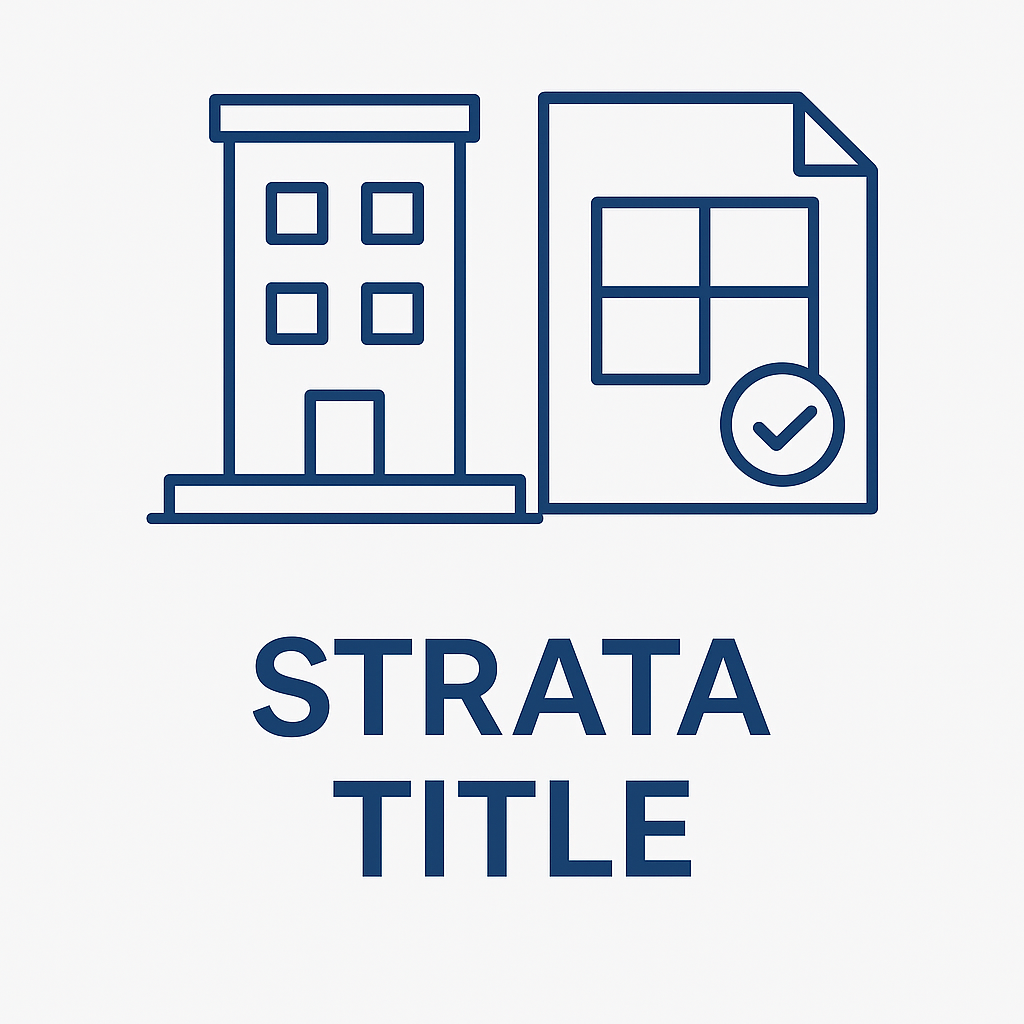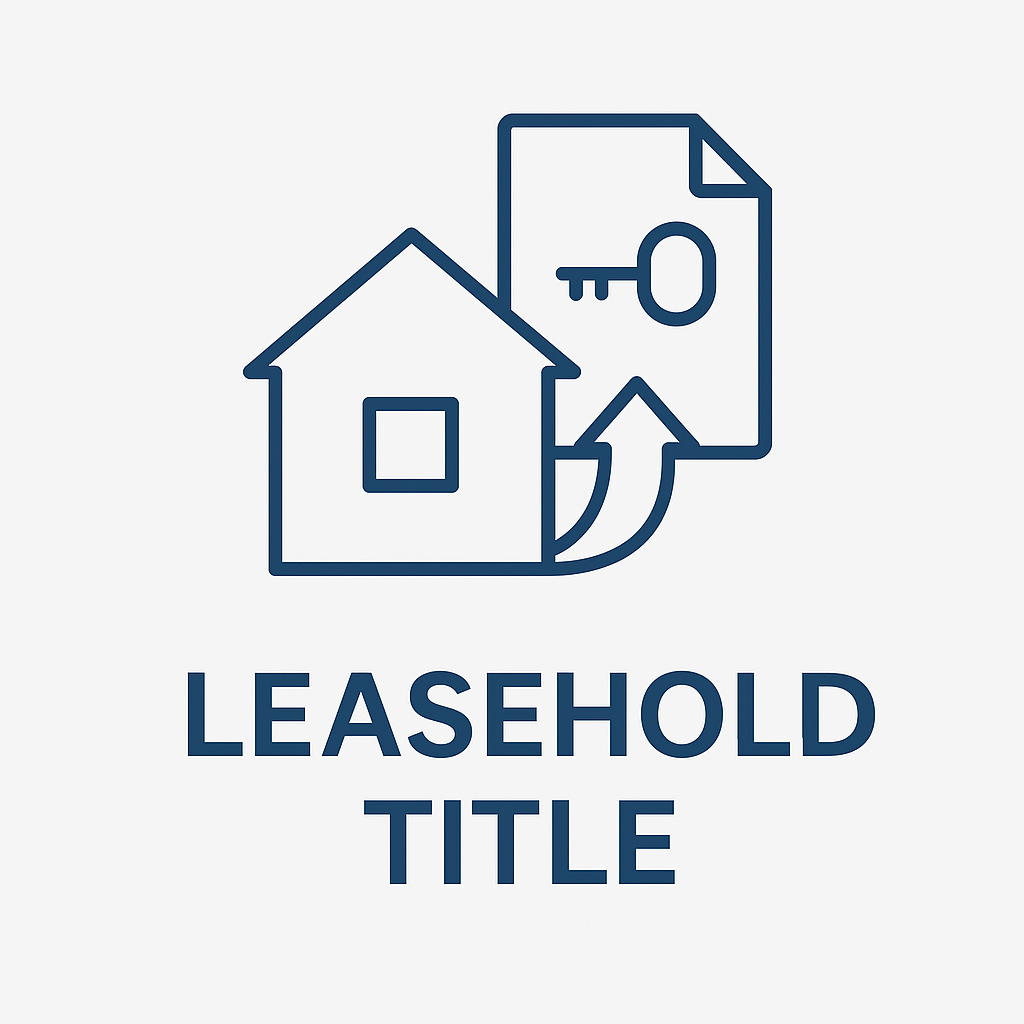Understanding Property Titles in Victoria
What Buyers and Sellers Need to Know
Buying or selling property in Victoria means dealing with the land’s “title” – the official record of who owns it and under what conditions. Different types of titles come with different rights, restrictions and responsibilities.
This page is here to help you understand the main types of titles in Victoria, how they work, and what you should look out for whether you’re buying or selling.
1. Torrens Title (Freehold Title)
What it is:
The most common form of ownership. Under the Transfer of Land Act 1958 (Vic), your name is registered as the proprietor of the land at Land Use Victoria.
Buying:
Your conveyancer will order a title search to confirm ownership, note any mortgages, easements or covenants.
You need to be sure there are no undisclosed restrictions or encroachments.
Any outstanding mortgages will generally be discharged by the seller at settlement.
Selling:
You’ll need to prove clear title (or arrange for the lender to discharge their mortgage on settlement).
Make sure all parties on title sign the contract and transfer.
If it’s your principal place of residence, your conveyancer may also help you claim any main residence exemptions on land tax.
2. Strata Title
What it is:
Covers ownership of a unit or apartment plus a share in the common property. Governed by the Subdivision Act 1988 (Vic) and the Owners Corporations Act 2006 (Vic).
Buying:
You must receive an Owners Corporation Certificate (OC certificate) under Section 151.
Check annual fees, special levies, insurance and rules.
Look at the minutes – are there big works coming up?
Selling:
You’re obliged to provide up-to-date OC disclosure.
Any unpaid fees generally adjust at settlement, but special levies can trip up unwary sellers if struck before settlement.
It’s wise to clear up any compliance issues (like pet approvals or unauthorised works) before you list.
3. Company Title
What it is:
Instead of owning your unit outright, you own shares in a company that owns the building. The company grants you exclusive occupancy rights over your unit.
Buying:
Banks are often reluctant to lend, or require higher deposits.
The company constitution may require board approval before you can buy (or later rent it out).
Always review the company rules carefully.
Selling:
Your buyer may need approval from the board.
Be prepared for delays or knockbacks which don’t happen under strata.
You’ll also transfer your share certificates in addition to handing over occupancy rights.
4. Crown Land and Crown Leases
What it is:
Land still owned by the Victorian Government under the Land Act 1958 (Vic). Private parties may hold leases or licences over it.
Buying:
You can’t usually buy freehold Crown land.
But you might buy a leasehold interest (like a long-term pastoral or caravan park lease). These often have strict conditions.
Selling:
You’re transferring a lease, not the land itself.
The new lessee often needs approval from the Department.
Always ensure all rent, fees and obligations are up to date before settlement.
5. Crown Allotments
What it is:
Historic references to original parcels surveyed by the Crown in the 1800s. Still used in country titles.
Buying:
Functionally the same as Torrens Title once registered.
Watch for undefined boundaries; a boundary survey might be needed if fences don’t line up.
Selling:
Make sure your description on the contract matches the title exactly (CA numbers can confuse agents and buyers).
If selling land with old fencing disputes, best to resolve them first.
6. Qualified or Limited Title
What it is:
Titles brought into the Torrens system but flagged because ownership or boundaries aren’t fully proven.
Buying:
Extra caution: these are subject to claims by other parties.
It may require additional title insurance, or eventually applying to upgrade to ordinary title.
Selling:
Buyers might be hesitant or banks cautious.
Providing a survey or historical documents can help.
Limited titles often need extra warranties or price adjustments.
7. Leasehold Title
What it is:
Your interest is under a registered long-term lease. The landlord may be the Crown or a private owner.
Buying:
You’re buying the lease, not the land.
The lease must be registered and reviewed carefully: look at remaining term, rent reviews, options.
Selling:
You’ll be assigning the lease to the buyer.
Most leases require landlord consent for assignment.
Outstanding obligations (repairs, rent arrears) can block the transfer.
8. Title by Adverse Possession
What it is:
Not a type of title per se, but a way to gain ownership if you’ve exclusively possessed land without permission for at least 15 years under the Limitation of Actions Act 1958 (Vic).
Buying:
A risky proposition unless fully documented. Title Office must grant the new title first.
Lenders may refuse to lend without established clear title.
Selling:
You’ll need a properly registered title after adverse possession (via application to Land Use Victoria).
Can’t just sell on “possession” alone – it needs formal recognition.
9. Other Interests Registered on Title
These aren’t types of titles but things that can sit on any title:
Easements – give rights like access or drainage. Must be disclosed.
Restrictive covenants – limit what you can build or how you use the land.
Caveats – someone else claiming an interest, which can block dealings.
These can all complicate sales and purchases. A proper title search and professional advice is critical.
Why It Matters
Whether you’re buying or selling, knowing the type of title (and what’s registered on it) affects:
Your rights to use or develop the land
Your obligations to others (owners corporations, lessors, neighbours)
Your ability to borrow money
The speed and certainty of your transaction
As explained by David Dawn, Licensed Conveyancer at Victorian Property Settlements, we regularly see transactions stall or fall over because buyers or sellers didn’t fully understand their title or its burdens.
Need Help?
We’ve been trusted for over 25 years by Victorian buyers and sellers to handle exactly these issues. If you’d like us to check your title or prepare your contract properly from the outset, get in touch.
✅ Victorian Property Settlements – Trusted for over 25 years by Victorian buyers and sellers. Visit: www.victorianpropertysettlements.com.au
Need more information
Here’s more detailed information on each; we’ll keep you updated as well.

















